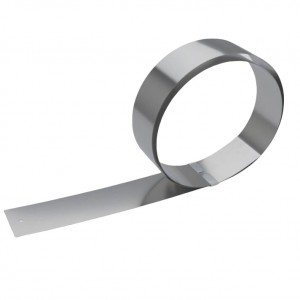304 Stainless Steel Strip
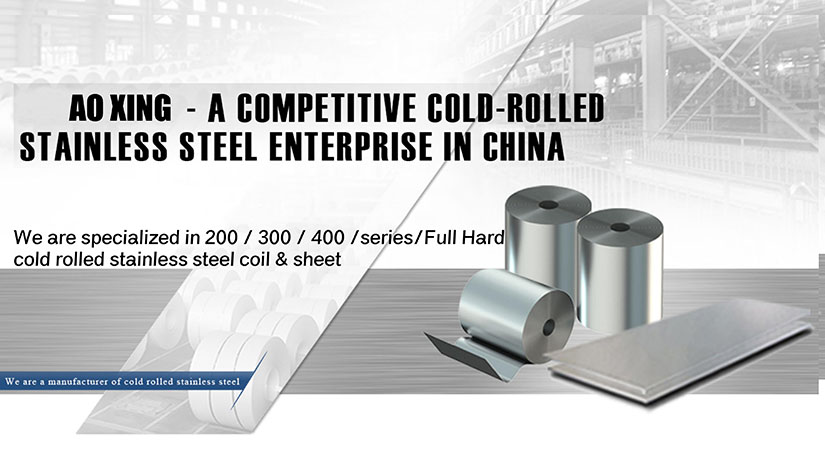
What is 304 Stainless Steel Strip?

The 304 stainless steel strip is the most extensively used chromium-nickel stainless steel worldwide, celebrated for its outstanding corrosion and heat resistance. It retains strong mechanical properties across a wide temperature range, from -196°C to 800°C. Known for its excellent formability, this steel can be easily shaped through processes such as stamping and bending and does not require heat treatment for hardening.
Its corrosion resistance is impressive, although regular cleaning is necessary in industrial or polluted environments to maintain its integrity. As a food-grade material, 304 stainless steel is widely used in the food industry, covering areas from processing and storage to transportation, thanks to its excellent machinability and weldability. The alloy composition includes over 18% chromium and more than 8% nickel, which are crucial for its corrosion-resistant qualities. Produced according to American ASTM standards, it also conforms to the Japanese SUS 304 specification.
Features of 304 Stainless Steel Strip
Features of 304 Stainless Steel Strip
The 304 stainless steel strip is renowned for its versatility and durability across a wide range of applications. It excels in various atmospheric conditions, though it is less suitable for marine and heavily polluted industrial environments. Its aesthetic appeal remains intact with routine maintenance or natural cleansing by rain.
While highly effective in potable water environments, 304 stainless steel faces challenges in high-chloride settings. It is prone to pitting and crevice corrosion at chloride concentrations above 200 ppm. Its use in seawater is limited due to susceptibility to crevice corrosion, and exposure to chlorides above 60°C can lead to stress corrosion cracking, necessitating careful selection in corrosive environments.
This austenitic stainless steel demonstrates remarkable toughness and energy absorption in impact testing, maintaining its integrity at temperatures as low as -200°C. For grade 304 sheets, the maximum service temperatures are recommended at 870°C for intermittent use and 925°C for continuous exposure.
Characterized by excellent formability, 304 stainless steel strips are suitable for various metalworking processes, with plasma cutting preferred over oxygen cutting. Its deep drawing quality is particularly notable, making it ideal for intricate shaping.
Weldability is another strong point, compatible with most fusion welding techniques. For applications requiring enhanced corrosion resistance, particularly in welds thicker than about 6mm, opting for 304L, the low-carbon variant, is advantageous. Conversely, for high-temperature scenarios, 304H, the high-carbon variant, offers improved performance, highlighting the versatility of 304 stainless steel sheets in meeting diverse requirements.
304 Stainless Steel Chemical Composition & Technical Data Sheet
304 Stainless Steel Standards Comparison
| STS | USA | UNS | CHINA | EURONORM | RUSSIA | SWEDISH | JAPANESE | |
| GRADE | AISI/ASTM | NO | GB | NO | NAME | GOST | SS | JIS |
| 304 | 304 | S30400 | 06Cr18Ni9 | 1.4301 | 06Cr18Ni10 | 08KH18N10 06KH18N11 | 2332 | SUS 304 |
304 Stainless Steel Chemical Composition
| Grade | Standard | Chemical Composition(%) | |||||||
| C | Si | Mn | P | S | Cr | Ni | Mo | ||
| 304 | ASTM A240 | ≤0.07 | ≤0.75 | ≤2.00 | ≤0.045 | ≤0.030 | 18.00~20.00 | 8.00~11.00 | - |
304 Stainless Steel Mechanical Properties
| Grade | Tensile Test | Hardness Test | |||
| 0.2% Y.S(Mpa) | T.S(Mpa) | Elongation(%) | Hardness | HV | |
| 304 | ≥205 | ≥520 | ≥40 | Annealed | 150 |
304 Stainless Steel Finish & Application
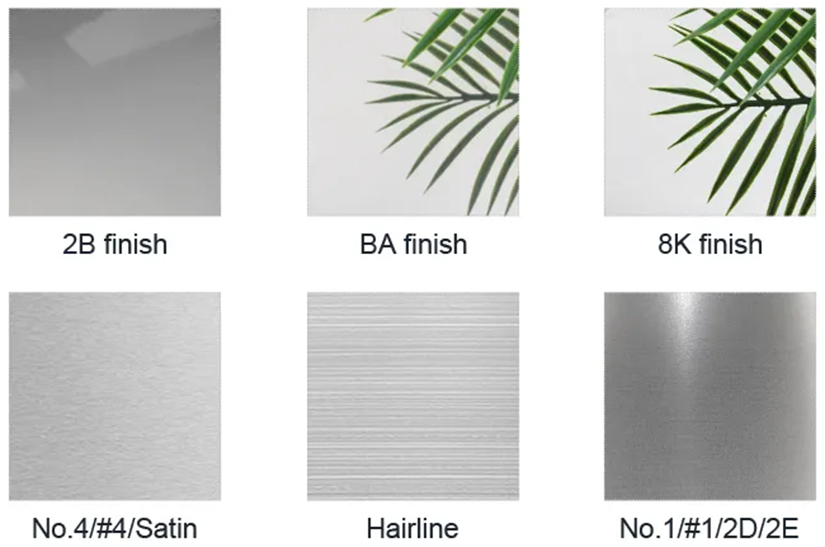
304 Stainless Steel Strip: Finish & Applications
The versatile 304 stainless steel strip is suitable for various applications, each tailored by the specific surface finish it bears:
BA Finish: Utilized in building construction, kitchenware, and electrical appliances.
2B Finish: Ideal for food processing equipment and medical instruments.
No. 3 Finish: Applied in building construction and kitchen utensils.
No. 4 Finish: Commonly used in medical devices and household utensils.
HL Finish: Chosen for construction equipment.
No. 1 Finish: Suitable for pipelines and chemical storage tanks.
304 Stainless Steel Strip Package & Loading Details


Why Choose Us?
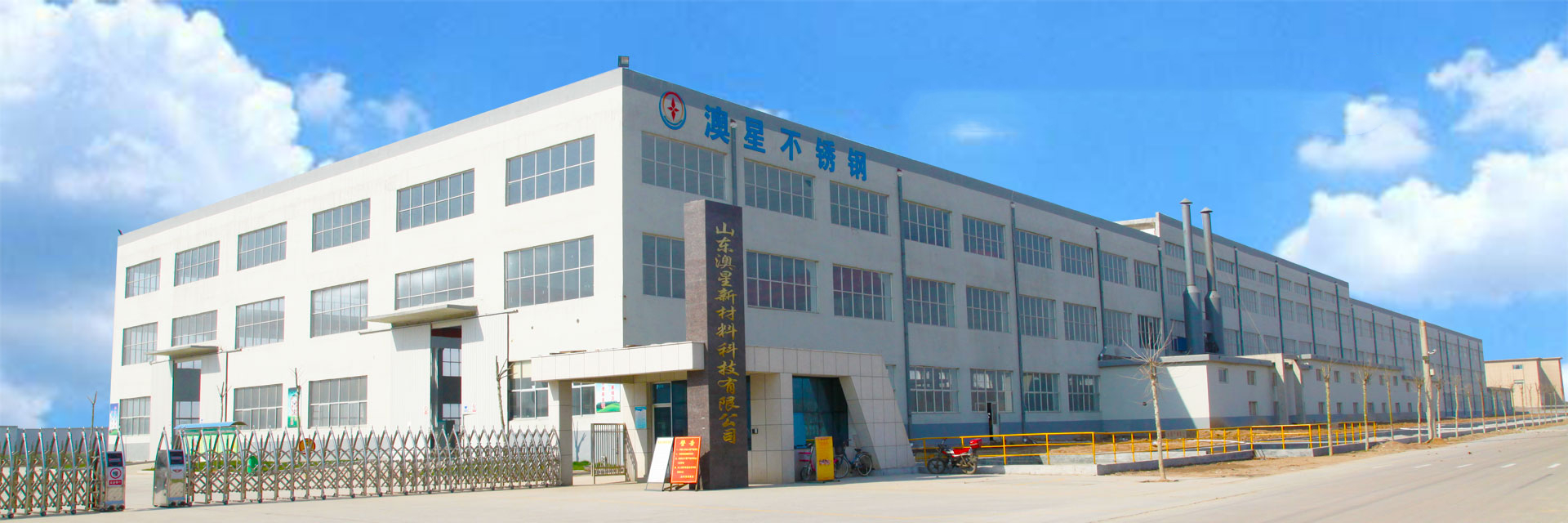
We are the cold-rolled stainless steel coil production base in China with 200,000 tons capacity annually.
1. Guaranteed Stock Availability: Experiencing stock shortages during crucial times can hinder your projects. Our robust inventory management ensures a consistent supply, ready to dispatch large quantities swiftly, keeping your operations smooth and uninterrupted.
2. Comprehensive Range of Specifications: Finding the exact stainless steel coil specifications can be challenging. We offer a diverse range of specs, ensuring you find precisely what your project demands, with the assurance of our commitment to meeting your specific needs.
3. Customized Material Processing: Custom processing needs can be demanding. Our advanced facilities provide tailored solutions, from precise dimension alterations to specific finish treatments, ensuring your requirements are met with utmost precision.
4. Accurate Shearing Services: Precision is key in stainless steel utilization, and our expert shearing services guarantee exactness in every cut, aligning perfectly with your specifications and quality expectations.
5. Cost-effectiveness is crucial in supplier selection. Our optimized procurement and cost-efficient processes ensure you receive not just premium-quality products but also the best prices, offering exceptional value for your investment.
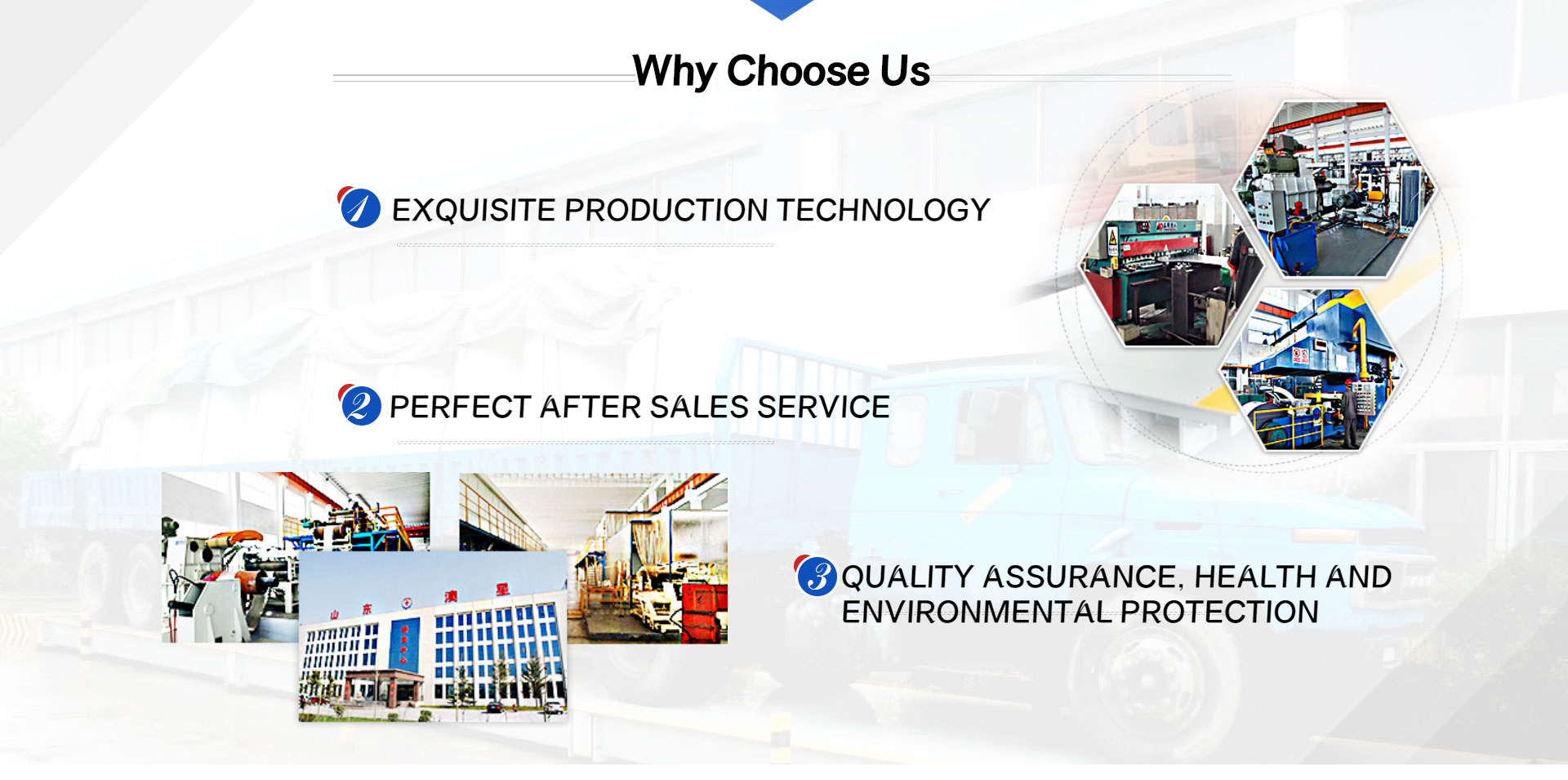
304 Stainless Steel Strip FAQ
Q: What is 304 stainless steel strip used for?
A: 304 stainless steel strip is a versatile material used in a wide range of applications due to its excellent corrosion resistance, strength, and formability.
Q: Can 304 stainless steel strip be welded?
A: Yes, 304 stainless steel strip is highly weldable using various techniques, and with appropriate post-weld treatments and filler materials, it maintains its desirable properties in welded structures.
Q: Is 304 stainless steel strip magnetic?
A: No, while 304 stainless steel strip is non-magnetic in its annealed state, cold working can induce some magnetic properties. Proper heat treatment can restore its non-magnetic nature.
Q: What are the mechanical properties of 304 stainless steel strip?
A: 304 stainless steel strip offers a robust combination of tensile strength, hardness, and elongation, making it suitable for a wide range of applications that require durability and resistance to wear and corrosion.
Q: Can 304 stainless steel strip be used in high-temperature environments?
A: Yes,304 stainless steel strip is suitable for high-temperature applications due to its excellent oxidation resistance, reasonable strength retention, and overall stability at elevated temperatures.
Q: How to choose a 304 stainless steel supplier?
A: Selecting a supplier for 304 stainless steel strip involves a series of steps to ensure quality and reliability:
Research Suppliers: Utilize online resources to identify reputable suppliers specializing in stainless steel, focusing on those with a strong industry presence and positive reviews.
Engage with Suppliers: Contact the suppliers to discuss their 304 stainless steel strip offerings, including specifications, pricing, and availability. Consider requesting samples for quality assessment.
Assess Credibility: Evaluate the suppliers' credibility by reviewing their business credentials, certifications, and customer feedback, ensuring they adhere to industry standards and best practices.
Compare Quotations: Solicit and compare quotes from various suppliers, clarifying your specific needs such as quantity, specifications, and delivery details to make an informed decision.
Verify Quality Assurance: Investigate the suppliers' quality control processes and request relevant test reports or certifications to confirm the coils meet your required standards.
Negotiate Terms: Discuss and negotiate key terms, including pricing, delivery, and payment conditions, ensuring they align with your requirements.
Order Placement: Finalize the purchase by confirming the order details, such as the coil specifications, quantities, and agreed terms.
Arrange Payment: Agree on a secure payment method that suits both parties, ensuring all financial terms are clear and documented.
Coordinate Shipping: Organize the logistics, including packaging, shipping, and customs clearance, to ensure the coils are delivered as expected.
Inspect Upon Arrival: Upon receiving the coils, inspect the shipment for quality and accuracy, addressing any discrepancies with the supplier immediately.

